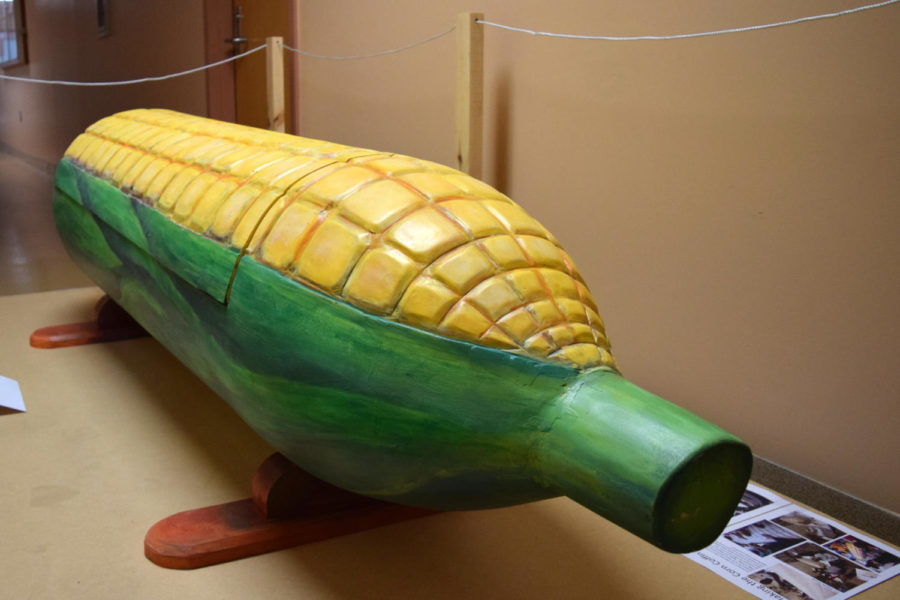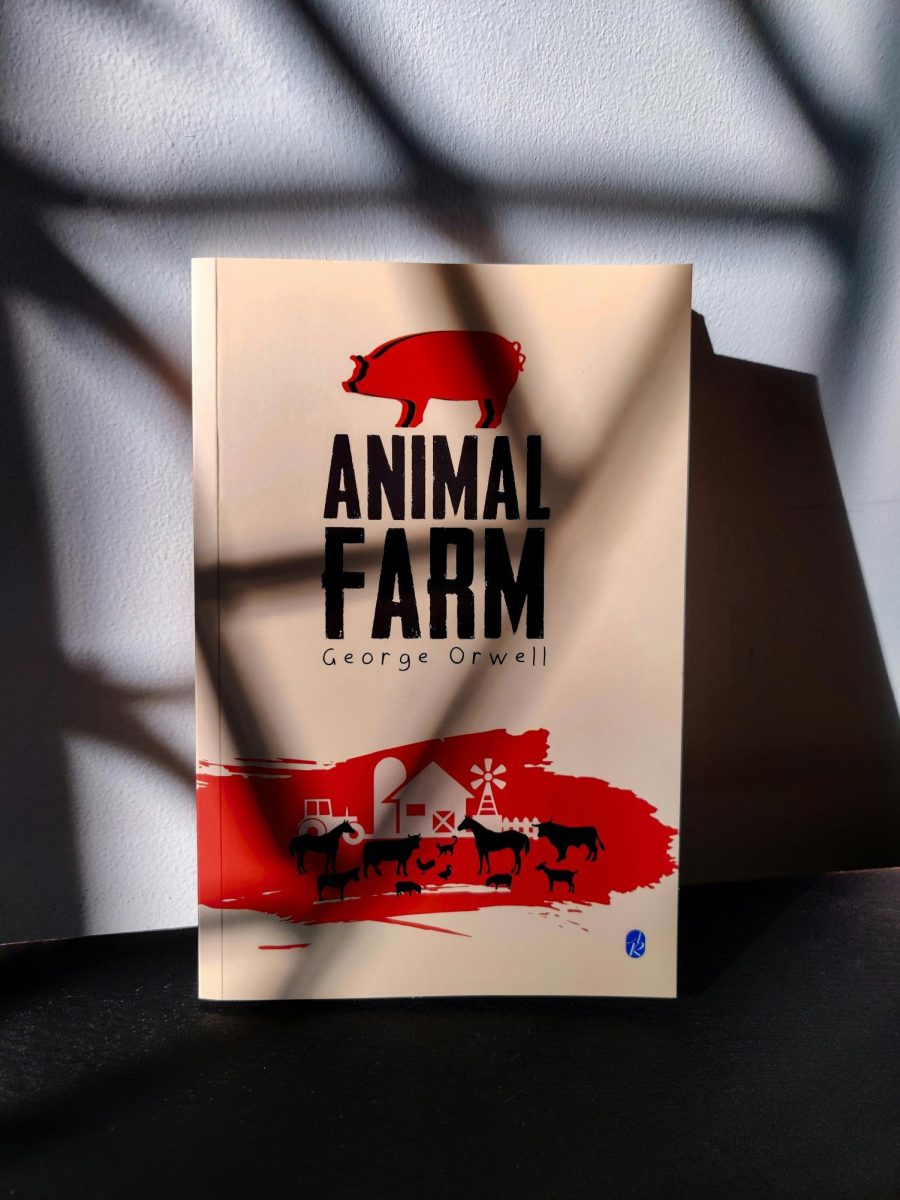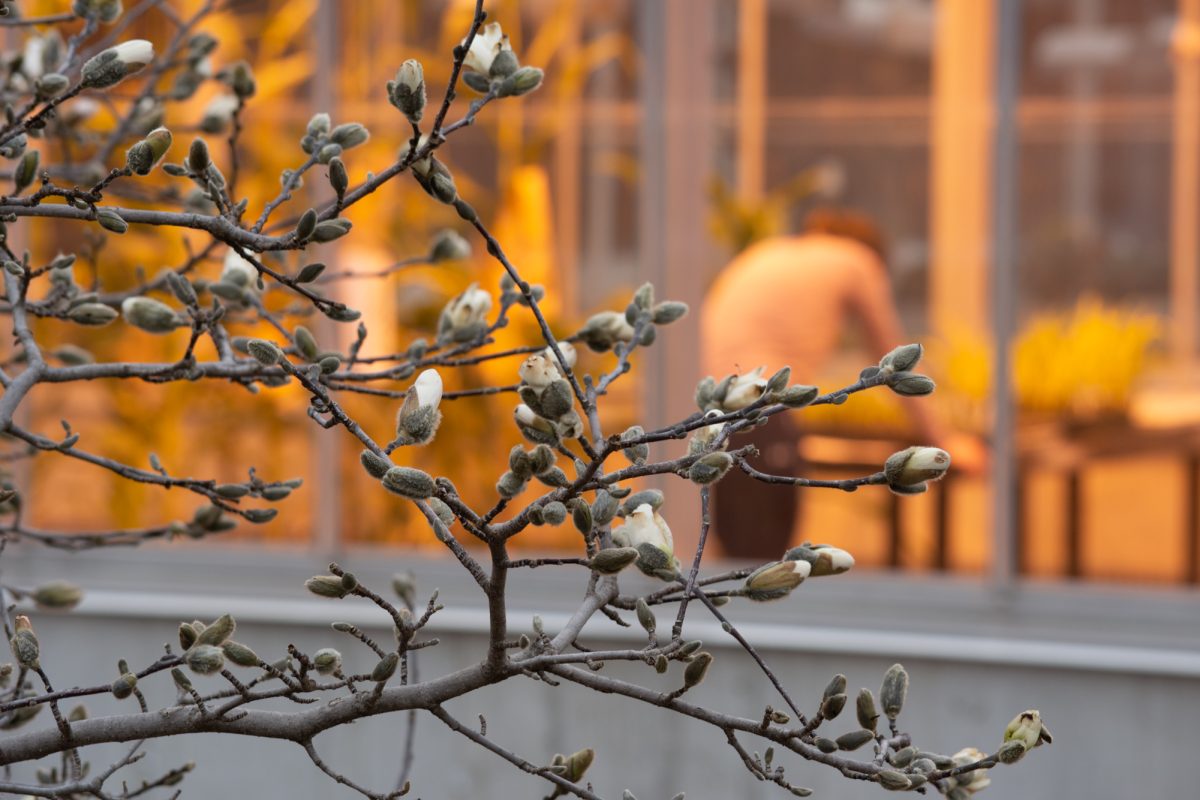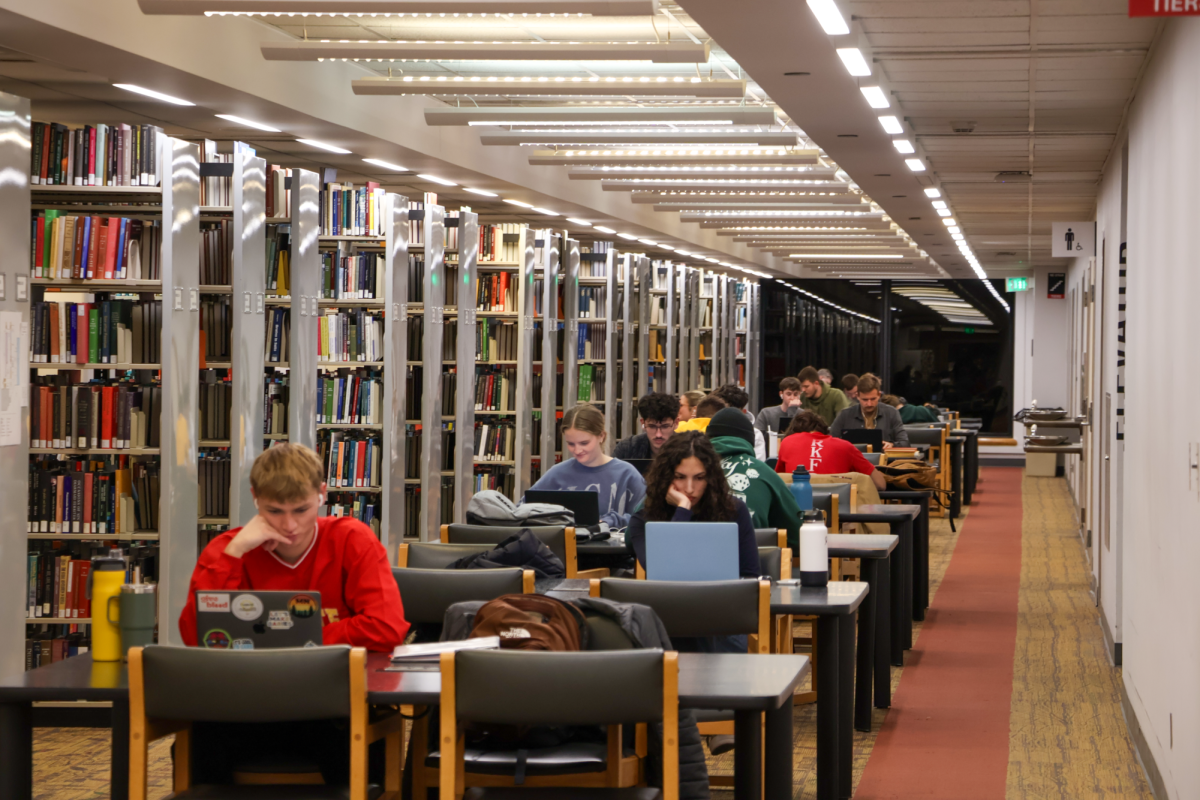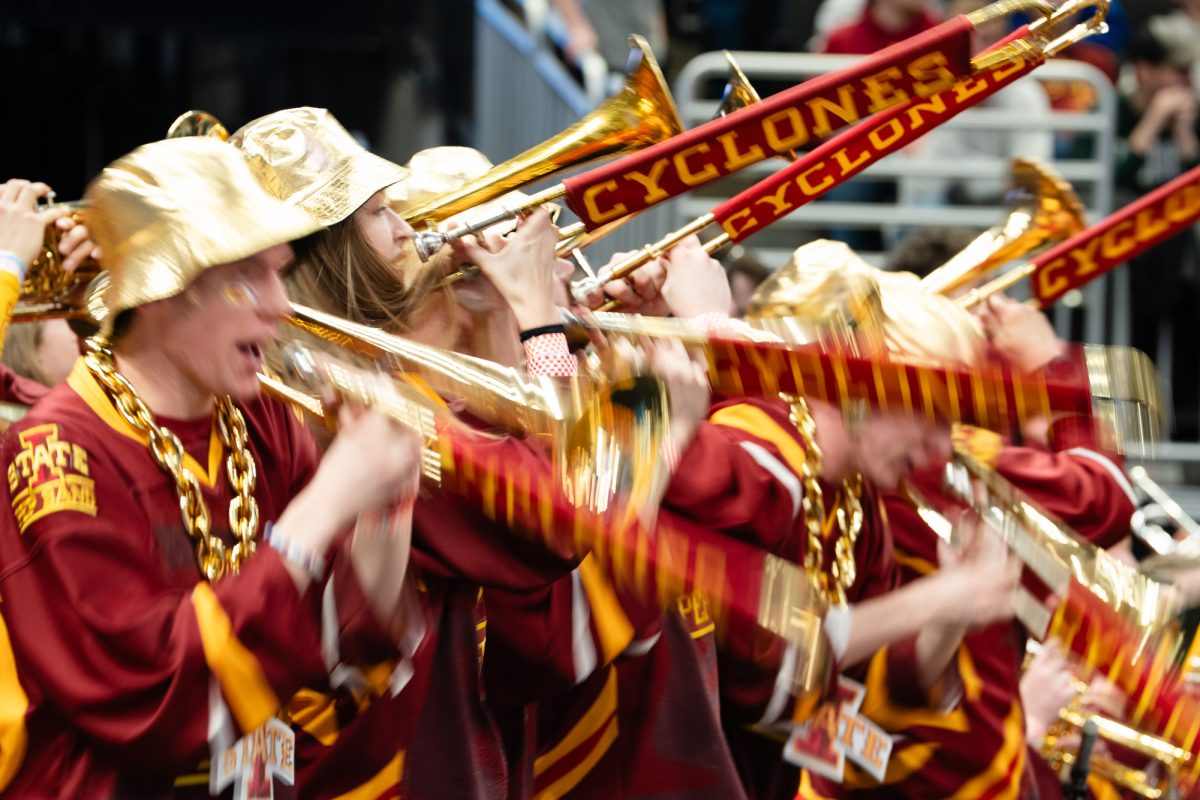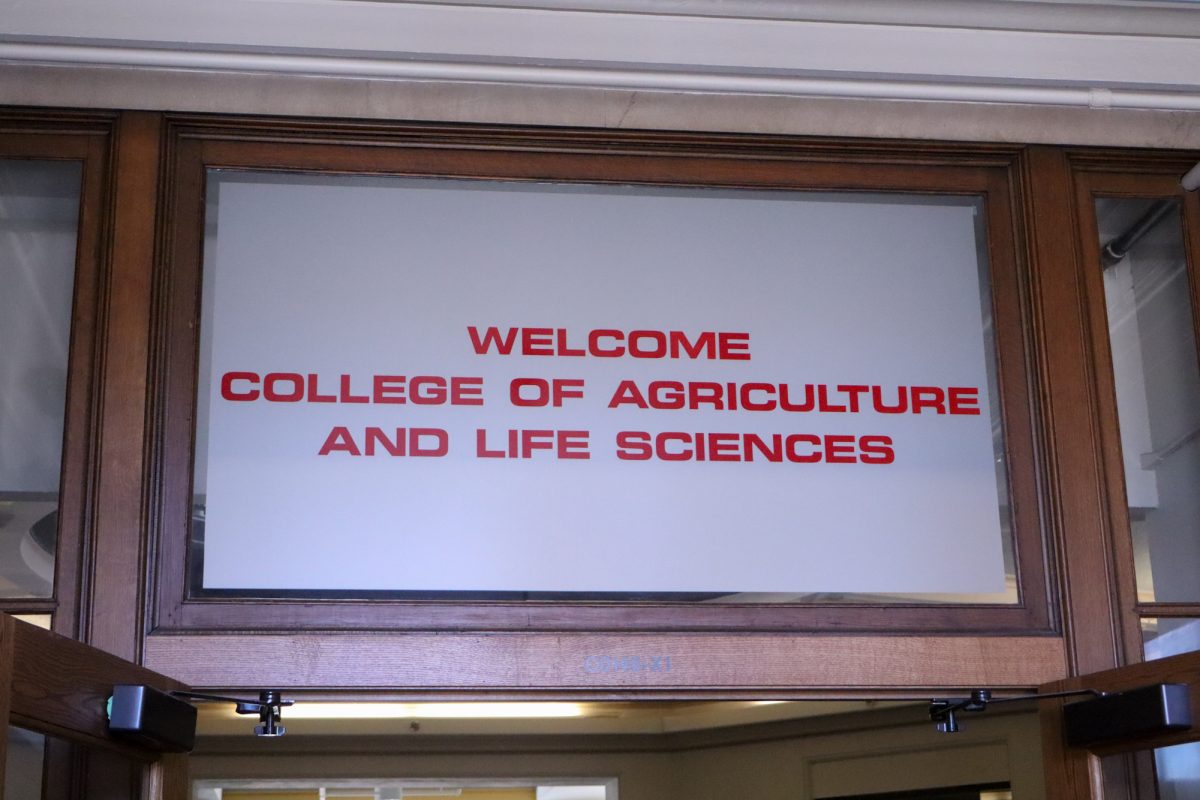Engineering students set to help village in Ghana
ISU engineering students will auction off a folk art coffin to help fund an earthen dam in Ghana.
May 13, 2015
A corn-shaped coffin is being auctioned by the ISU chapter of Engineers Without Borders in order to fund a project in Ghana.
The auction opened on April 20, with a starting bid of $500 and closed on April 30.
Michael Lensing, co-owner of Lensing Funeral & Cremation Service in Iowa City, submitted the winning bid of $2,850.
The folk art coffin was created by Eric Adjetey Anang, an artist from Ghana who visited Iowa State last semester. Chris Martin, associate professor of art and visual culture, invited Anang to Iowa State to teach his design students and help create the coffin.
Martin said the folk art coffins are unique to Anang’s village in Ghana.
“Ghana is well known for their art,” Martin said. “Every village specializes in special craft. So where [Anang] lives, there’s all kinds of fantasy coffin makers there.”
Ben Biggins, president of the ISU chapter of the organization and a sophomore in chemical engineering, said Engineers Without Borders is a national organization.
“We partner with communities in developing countries and work with them to develop sustainable solutions for their basic needs such as sanitation, water, irrigation and things like that,” Biggins said.
Engineering students from Iowa State will use the proceeds of the auction to help fund a project in Ullo, a village in northwest Ghana. The project will either be an irrigation system or a sanitation system, based on which is decided to be of the greatest need.
Initially, the student organization planned to build a dam in the village. However, Biggins said a missionary group came into the village and started construction on a dam. Because of this, they might build an irrigation system for the dam or they would build a sanitation system for the village.
“Right now, the question is what project we’re going to be working on,” Biggins said. “We need to get in contact with the missionary group to find out their future plans for irrigation in the village. If they don’t have any, then we’ll try to step in and take over.”
Biggins said there is also a government project in process for boreholes that they may also take over.
Joe Gettemy, senior in mechanical engineering, said the Ullo is in a very arid region but is an agrarian society.
“Our overall intention is that we want to be able to extend their growing season by either a half season or a full season,” Gettemy said. “Beyond that, we’re also hoping to give them a reliable source of water and food.”
Gettemy said they hope to also provide the ability for not all of the villagers to be farmers.
In Ullo, teachers sometimes have to dismiss class in order to farm. Gettemy said they hope to have a cascade effect and enable the teachers to focus more on teaching instead of surviving themselves.
Seven ISU students plan to travel to Ghana this winter to assess and gather data. They will use the data collected to help design their project in the United States before returning to Ullo to start building.
This will be the second visit to Ghana by ISU Engineers Without Borders. The first took place last summer with six students and two mentors, who had the opportunity to connect with leaders and other members of the village.
Gettemy said they were able to get to know the people in Ullo and understand their engineering needs.
Biggins was one of the students who visited the village last summer, and will return during Winter Break.
Nordby said she believes it’s great they will have a member who has gone twice, in order to give the community in Ullo a familiar face to connect to.
Biggins said he is very excited to return to Ghana.
Gettemy said this experience is going to be completely different than any other.
“This organization gives us the opportunity to teach our ingenuity and creativity,” Gettemy said. “We’re really making a sincere impact on the lives of humans around us, which is really very exciting.”
To learn more about the ISU chapter of Engineers Without Borders and its project, visit ewbisu.org/about.


